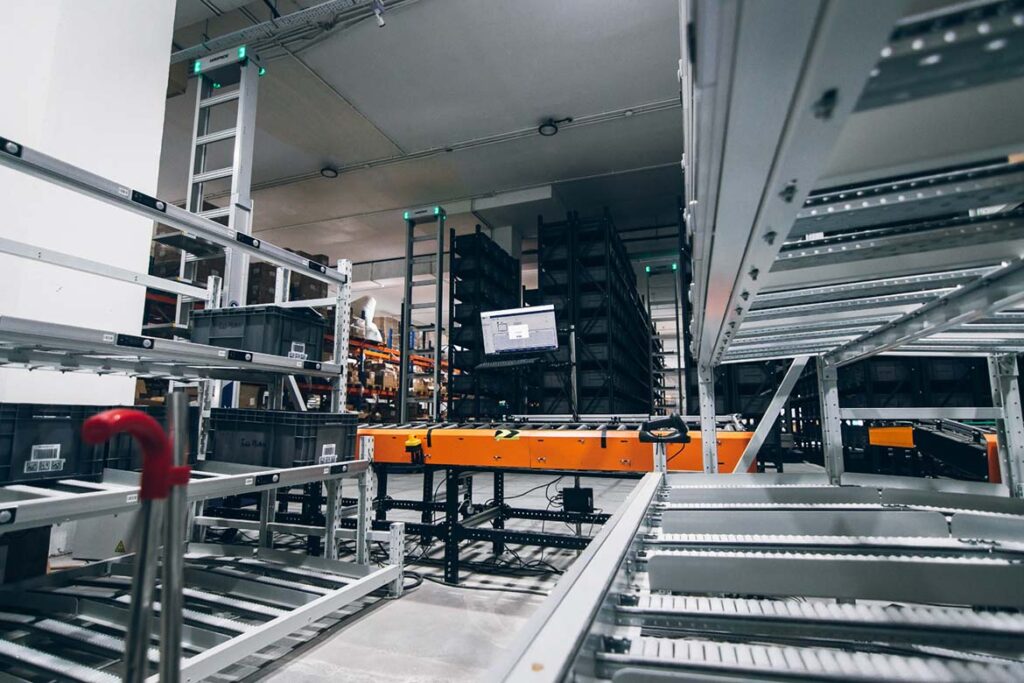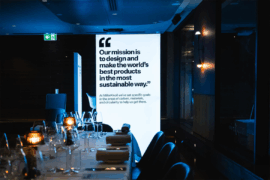Sheldon Global implements robotics and automation in its operations and hire physically disadvantaged individuals as part of its logistics team.

Brien Chua of Sheldon Global
July 12th, 2023
For Brien Chua, founder of Sheldon Global and nine brands in home, living, and retail in Singapore, building businesses from scratch has been in his DNA ever since his first foray into entrepreneurship at the age of 19. The chief executive and founder of multiple homeware brands has stepped his innovation ante even more during the pandemic with the integration of robotics and automation to assist in warehouse operations while simultaneously creating upskilling opportunities for his employees and exponentially growing his businesses despite the challenging times.
“With the implementation of robotics and automation, warehouse operations are now much smoother and more seamless, as the robots have replaced actions that were labour-intensive and repetitive,” says Chua. “In fact, operational efficiency increased by 50% and picking efficiency and accuracy has also gone up, and is now at 95%.”

Implementation of automation into Chua’s key brands ecoHOUZE and Table Matters has transformed business operations at Sheldon Global in several key ways. It has simplified repetitive procedures associated with day-to-day work, which freed up manpower and man-hours to improve the overall warehouse operations. As a result, Chua and his team can now upskill the essential warehouse staff to handle other tasks and bolster their skillsets.
As the number of robots in workplaces gradually increases globally, Sheldon Global, under the leadership of Chua, is the first SME in Singapore to integrate robotics in their retail and e-commerce logistics chain. The advantages of integrating automation in its core business operations have also led Sheldon Global to partner with a local non-profit organisation BizLink to hire physically disadvantaged individuals that have undergone training and introduce them to the workforce as part of the Sheldon Global logistics team.

“Often times when people think of automation and technology, they think of it replacing blue-collar jobs,” attests Chua. “But I think robotics integration has allowed us to empower our employees to reap the benefits of automation by helping them do the heavy lifting of picking and moving goods. This gives employees, especially the older ones, the opportunity to learn and upskill themselves and learn how to operate the robotics and navigate the user interface.”
For Sheldon Global, as automation bears the brunt of production workloads and handles repetitive labour-intensive tasks, employees are encouraged to take on supervisory roles, with more time on their hands to add human touches to their products before they reach customers. The exposure to technology also encourages the Sheldon Global team to gather knowledge and insights into the use of AI, data, technology and robotic processes, which fosters critical thinking, specifically on how the data gathered from the warehouse robotics can be used to create better results.

The intuitive balance of automation and human-centred business practices is leading Sheldon Global to expand its lifestyle businesses into other markets, such as the USA and Malaysia this year. Chua, for one, is optimistic about the future. “Although Sheldon Global is still growing, this move to expand would be much more difficult to execute had we not developed the existing automation systems that we have today. Robotics and automation have simplified the expansion process by allowing us to streamline operational workflow and easily monitor and maintain stock levels across all of our brands.”
INDESIGN is on instagram
Follow @indesignlive
A searchable and comprehensive guide for specifying leading products and their suppliers
Keep up to date with the latest and greatest from our industry BFF's!
The new range features slabs with warm, earthy palettes that lend a sense of organic luxury to every space.

Welcomed to the Australian design scene in 2024, Kokuyo is set to redefine collaboration, bringing its unique blend of colour and function to individuals and corporations, designed to be used Any Way!

London-based design duo Raw Edges have joined forces with Established & Sons and Tongue & Groove to introduce Wall to Wall – a hand-stained, “living collection” that transforms parquet flooring into a canvas of colour, pattern, and possibility.

GEYER VALMONT is launching an innovation hub designed to improve existing interior design capability through enhanced ways of working and industry-leading technology products.

From Valmont to GEYER VALMONT, Marcel Zalloua walks us through some of the milestones of what has been a fruitful, busy career in design.
The internet never sleeps! Here's the stuff you might have missed

Grounded by the rich warmth of American white oak, The Standard’s newly opened restaurant, Kaya, redefines the classic dining convention through a tasteful fusion of biophilic design, mid-century modern sensibility and elevated whimsy.

MillerKnoll reimagines the convention of dinner table interactions by plating up a future-forward menu of sustainable design conversation starters as part of the inspiring “Conversations for a Better World” event series.